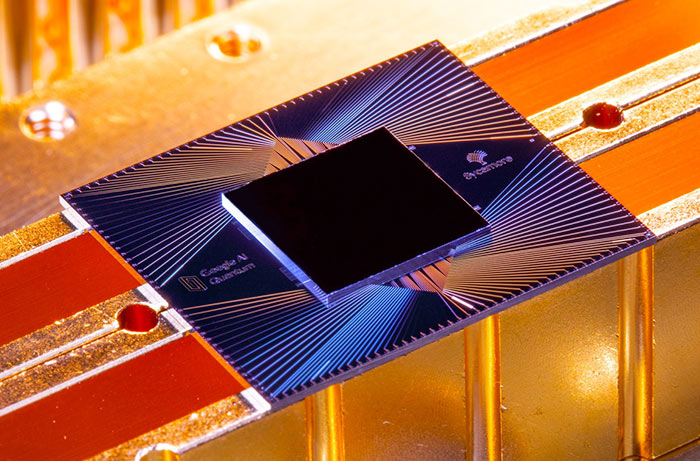Google is following Apple in pursuing greater vertical integration by developing its own SoCs for its devices. Such a move would give Google greater control of the SoC performance profile, give it better control of the product refresh cycle, and potentially provide it with a major USP for marketing its devices. There are some dangers to going down this route though; there is a significant expense involved in developing your own processor(s), and your new tech could end up looking less appealing / performing worse than competitor SoCs taking the shine off the whole venture.

An exclusive report published by Axois claims that Google has already "made significant progress toward developing its own processor," and it frames this as a decision spurred by the wish to compete more closely with Apple. However, we must remember the Google Pixel is very small fry compared to the Apple iPhone. In its most recent set of financials Alphabet, Google's parent company, didn't mention Pixel 4 sales numbers - though it did say the Pixel 3a, Nest Mini, and Nest Hub all "sold well". This indicates Pixel 4 sales haven't been stellar.
Will a Google SoC under the bonnet help with Pixel smartphone sales? The new report says that we will likely find that out starting from 2021, when Google's efforts will deliver the first generation of its own SoC. If timelines continue as they are, that would mean the new processor will be a feature of the Pixel 6 (and Pixel 5a?). Google Chromebooks will be the next products to make use of the new SoC, if performance is up to scratch and the smartphone proving ground makes this look like a good option.
Axios has some more specific details of the Google SoC from its insider(s), as follows:
- It is has the codename Whitechapel,
- It was designed with the help of Samsung and will be fabricated on the South Korean firm's 5nm process,
- The design is based around 8 Arm cores,
- Google's special SoC sauce will include its machine-learning technology, and a portion of the chip dedicated to always on AI tech for Google Assistant responsiveness.
- In recent weeks Google has received the first test versions of Whitechapel, according to the source report.

Google Sycamore quantum processor
HEXUS has previously reported on some impressive Google processor hardware designs, such as its Sycamore quantum processor, the Titan M security chip, and the Google TPU (Tensor Processing Unit) for AI. Furthermore, its current Pixel 4 flagship smartphone contains not just the Titan M but a custom ML processor from Google, dubbed the Pixel Neural Core.













